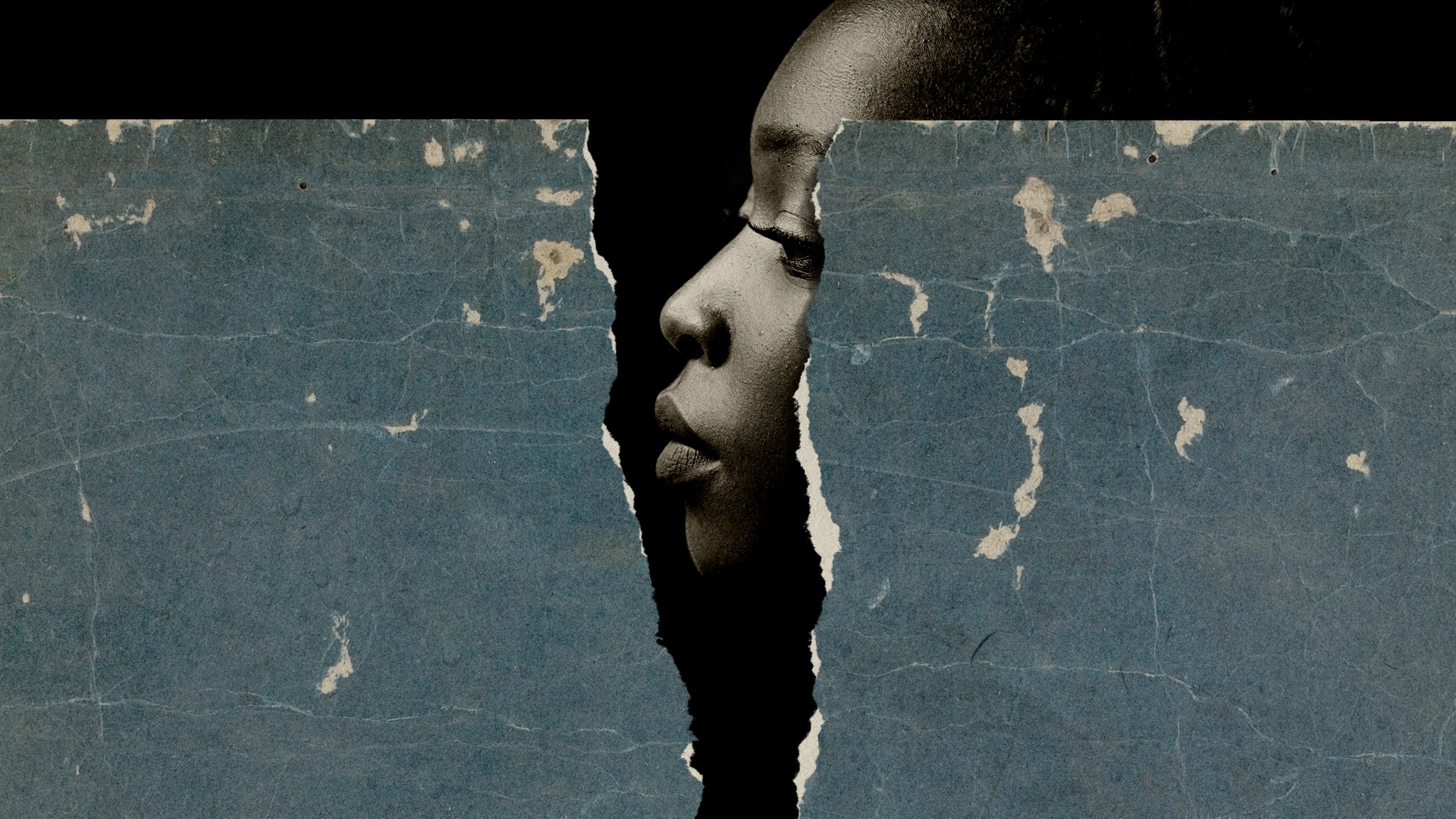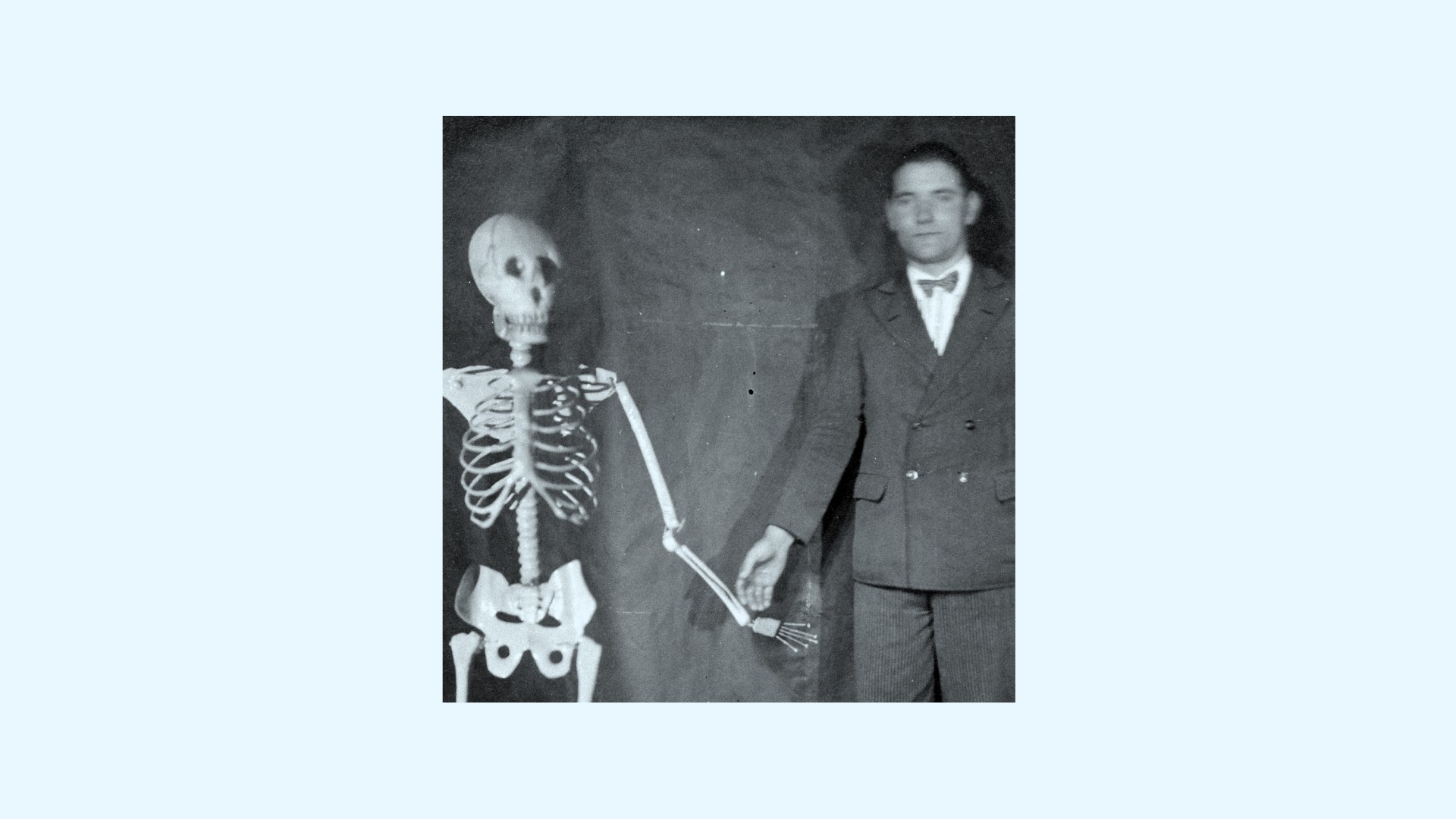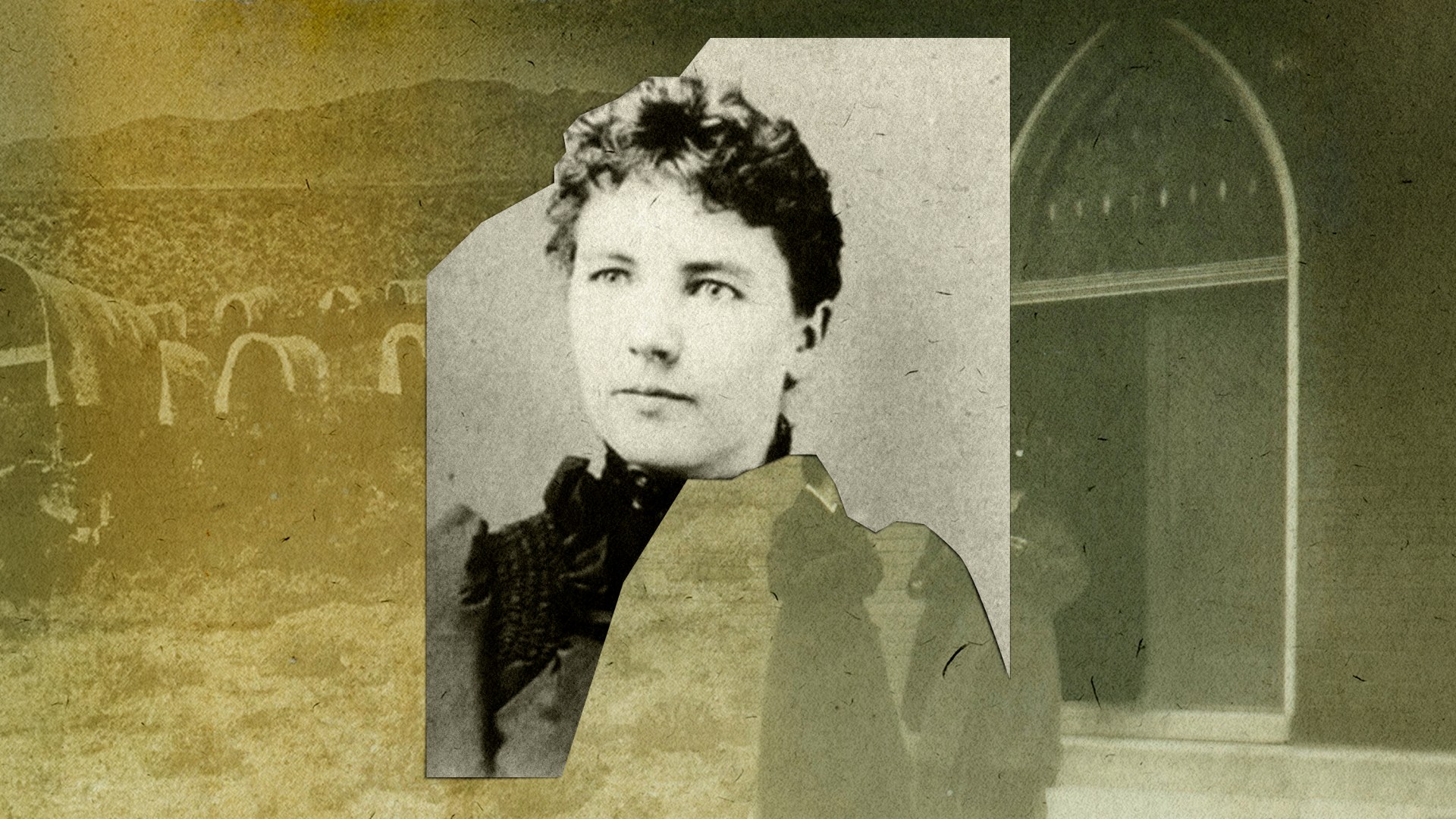When I was four years old, I went missing for three hours. While it was a common occurrence for my parents to not be able to find me because I was hiding between the racks of clothes at the Strawbridge & Clothier department store, this wasn’t the case. No, I was taken. A neighbor who lived up the street asked my mother if she could take me “around the corner,” which is just a hood way of saying “not too far,” to buy me ice cream.
Up and back, it should have been a 30-minute trip, but after more than an hour passed, my mother knew something was wrong. There were no cellphones back then, so I can only imagine the horror, the guilt, and the fear my mother must have felt. The entire neighborhood was searching for me, including the woman’s own family members, who, my parents said, “had that uncomfortable look on their faces.” People were worried because everybody knew Sandy meant no harm but her mental disability at times prevented her from appreciating the gravity of her actions.
Eventually, I was found, grinning from ear to ear, with dried ice cream around my mouth and Sandy holding tightly to my hand. Sandy had done exactly what she told my mother she would do: She took me around the corner to get ice cream, but then she walked with me two more miles to the mall. I have no memory of this event, although I do remember Sandy. Praise God, I was found, and I was fine.
That’s the way you want all missing stories to end—missing, searched for, found, and with no memory of anything terrible happening in between. But that’s not how all missing stories end, especially for Black women.
Despite Black women historically being considered the backbone of the church and earning the distinction of outnumbering men in the pews, there is a disturbing trend that we must address. Though we as Black women are among the most religious groups in the United States, there is an exodus of Black women missing from churches for a variety of reasons, and some of us aren’t just leaving a specific congregation; we are leaving the faith completely.
Aswad Walker of the Defender wrote about the top reasons Black millennials say they are leaving the church: (1) The church is too judgmental, (2) they are choosing traditional African spiritual practices, (3) the church is too anti-intellectual or closed to new information, (4) the church is too apolitical, and (5) not enough of their peers attend. Others have included the impact of patriarchy in the church and Black women not being able to adequately see themselves as image bearers of the triune God.
Do these conclusions surprise you, or are you familiar with what is being sourced as the reason for Black women leaving our churches?
I believe our collective eyes, ears, and empathy are the tools we need to make sure Black women aren’t invisible, ignored in the church, or unnoticed and unfound when they depart. Whether you are in leadership or are a lay parishioner in the pews, we each have a part to play in helping one another stay rooted where God plants us so we can flourish in our lives and local churches. Here are some suggestions for how we can begin to better address the issue of missing Black women in the church.
Act like family
There are three relationships with women in the family of God that I believe will help protect Black women from leaving: sisters, friends, and spiritual mothers/aunties. We all should be occupying these roles over the course of our spiritual lives. One of the beautiful things about being a Christian is that you automatically get adopted into the family of God (Rom. 8:15). You get a family of siblings, spiritual parents, and friends. Through these relationships, we are called to grow with one another and influence one another’s growth from spiritual infancy to spiritual maturity (Prov. 27:17; Gal. 6:10).
We get the benefits of protection, accountability, knowing and being known, spending time with like-minded people, discipleship, spiritual nurturing, prayer partners, and friends to worship and celebrate with in a community of diverse and intergenerational wisdom that helps us develop holistically as women.
Relationships, even among family members, require work. They won’t always be easy, feelings will get hurt, and undoubtedly, we will be closer to some than to others, but at the end of the day, we ride with one another. If we stick together, love one another, cheer for one another, lift one another, wipe one another’s tears, pray together, and tell one another truth, we can be an unstoppable force in God’s kingdom.
Reprove and restore Black women struggling with sin
Words like reprove or rebuke are often frowned on in our current climate, which quickly labels things as spiritually abusive when they are merely biblical correction and accountability. To reprove is to correct or criticize someone with the intent of amending some fault. It can also be defined as “to scold or correct usually gently or with kindly intent.”
God is shown in Scripture as a loving parent who brings discipline to instruct and correct his children. However, as Christians we don’t always do this well. We can pick people apart with constant rebuke that is crushing instead of redemptive, or we can avoid reproving our sisters because we don’t want them to get upset or run away. However, the psalmist said, “Let a righteous man strike me—that is a kindness; let him rebuke me—that is oil on my head. My head will not refuse it” (Ps. 141:5).
Many times, women go missing when they are led away by sin because no one had the courage to offer a word of correction or warning. God calls you to do this for your sisters in Christ. Proverbs 27:5–6 emphasizes this point: “Open rebuke is better than love carefully concealed. Faithful are the wounds of a friend, but the kisses of an enemy are deceitful” (NKJV). We weaken the church when we don’t cooperate with God in confronting sin—after examining our own hearts first (Eph. 4:25), then gently correcting (Gal. 6:1) and, when necessary, rebuking sharply (Gal. 2:11–14).
As members of a local body, this is an act of love. Love isn’t punkish. Love isn’t politically correct; it’s biblically correct. Love isn’t silent when you run out in the street like a child playing in traffic. We need to tell one another, “Don’t go down this path,” “That’s not a good look,” and “You need to pray about this.” We need older church mothers to say, “Baby, that’s not wise; that’s not right. You need to repent.” The goal is not just to call women out but to call them up into Christ (Eph. 4:15).
Support Black women
Women are so often stereotyped as being highly relational that we can assume building healthy relationships comes easily and doesn’t have to be taught. That isn’t the case. We all need our understanding and practice of relationships upgraded by the gospel.
We need to take the lead in relationship building. Jesus’ mission was about initiating and restoring relationship with us (Matt. 4:19); therefore, we need to lead the way in initiating loving relationships with others (John 15:12). When Black women are new to the church, it’s important that we remember what it was like to be in their shoes.
As an established church member, it’s your responsibility to pursue relationship, start the conversation, and offer to connect. Be consistent in reaching out and following up to invite women to activities and events at the church. Certainly, new members can and should pursue relationships, but current members should take the lead. Everyone wants to be loved by being chosen. Jesus modeled choosing us, though we’re unworthy of his friendship, so let us also choose others (John 15:16).
Missing Black women deserve to be sought after. Jesus coming to earth was a literal rescue operation motivated by his love (John 3:16). Love must precede any seeking actions (Isa. 62:12).
But it’s also important to discern if missing women have deconstructed their faith or are having a faith crisis. I’ve heard countless stories of women who left churches because they had questions about Christianity that no one answered. If you know someone in this boat, if they are willing to share, ask them questions so you can understand where they are coming from. Has there been a life stressor that has caused anger or disappointment toward God (a death, unanswered prayers, job loss, etc.)? Are they willing to share about their recent curiosity about other religions or ideologies and who has captured their attention?
Additionally, we must be prepared to counter and truthfully respond to doubts such as “Is Christianity the white man’s religion?,” “Are God and the Bible sexist against women?,” and “Is Christianity a safe place for the flourishing of Black women?” Validate, empathize, and normalize that having questions is good and that God can handle our questions. You don’t have to know everything to help Black women who are questioning or drifting.
We have to prayerfully appraise the signs of depression, stress, grief, trauma response, or other psychological issues. Sometimes women go missing or disengage and they haven’t even processed why. Asking great questions, letting the person talk, showing care for their mental state, and normalizing the impact of mental distress are very helpful when someone feels overwhelmed or stuck emotionally.
There is a difference in how our law enforcement system responds to people who are labeled as missing versus those labeled as runaways—those who are believed to have willingly left home aren’t searched for the same. We should be honest if we struggle with the same biases in the church. Are we seeing Black women as runaways or as missing women? Do we see Black sisters in Christ with eyes of grace and love or with judgment, contempt, and dismissiveness? Or, even worse, do we not see them at all?
God lets us go when we want to walk away from him, and he is always willing to receive us with open arms when we return. Sometimes the return may be coming back to the church for membership, or it could be just coming back to visit, have a conversation, or repair a burned bridge. Even more exciting, it may be a return to Jesus.
I am a prodigal daughter. I didn’t just walk away from a church, but I walked away from Jesus. However, I remembered my Father and went back to him (Luke 15:17–18). Like Nebuchadnezzar, who lost his mind, when I looked up to God, my sanity returned to me, and I came back to the Lord (Dan. 4:34–37). By God’s grace, I was received with open arms, just like the prodigal son (Luke 15:28–32).
“The Lord is not slow to fulfill his promise as some count slowness, but is patient toward you, not wishing that any should perish, but that all should reach repentance” (2 Pet. 3:9, ESV). A vision for missing Black women is the heart of the gospel—a rescue mission. Jesus modeled that he will go to great lengths to come after his daughters, and he will often recruit you to be a part of his rescue plan.
Sarita Lyons is the author of Church Girl, as well as a is a wife, mother, speaker, Bible teacher, and psychotherapist. She is also the director of discipleship and women’s ministry at Epiphany Fellowship Church in Philadelphia.
This essay is adapted from Church Girl: A Gospel Vision to Encourage and Challenge Black Christian Women by Sarita Lyons. Copyright © 2024 by Dr. Sarita Lyons. Published by Multnomah, an imprint of Penguin Random House LLC. All rights reserved.










































